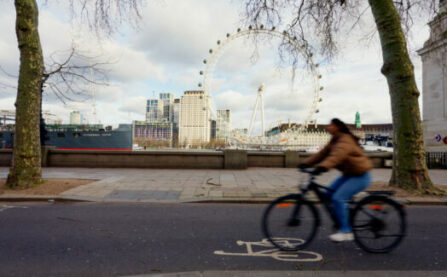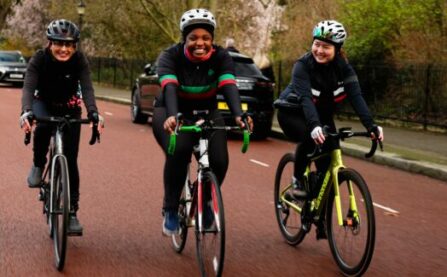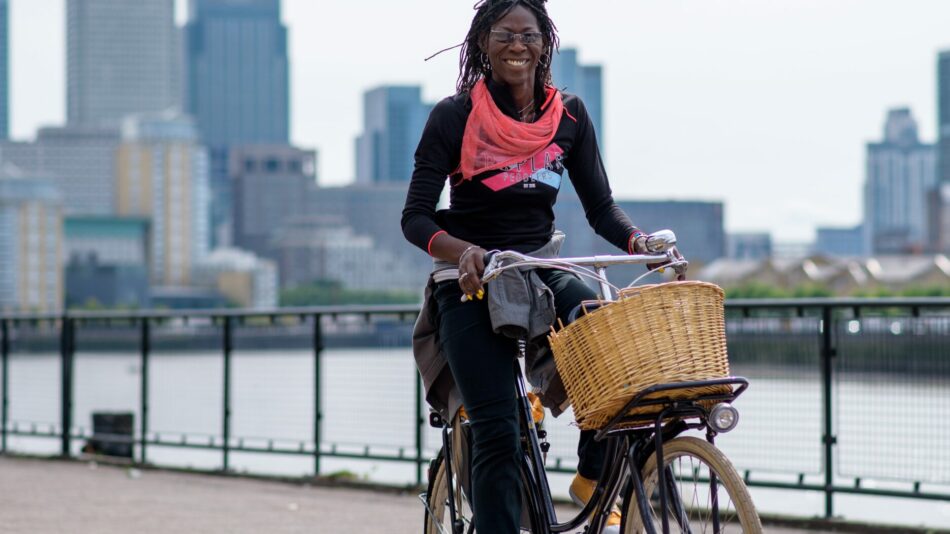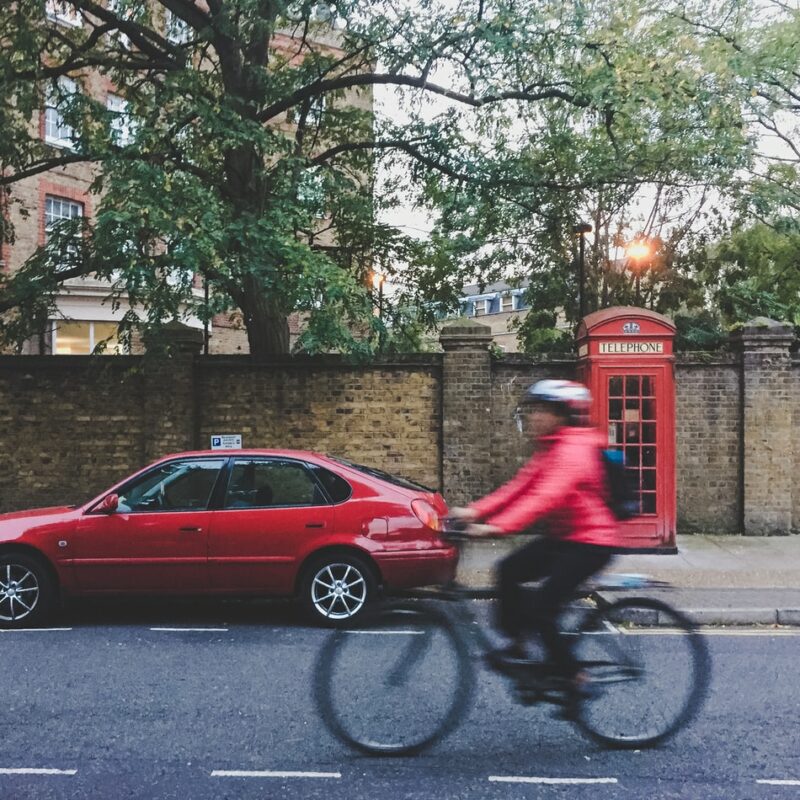

The plan re-emphasizes London needs a 27% reduction in road kilometres driven in London by 2030 to achieve London net zero carbon emissions by 2030 – something impossible without a much higher rate of cycling.
But the targets in Cycling Action Plan 2 are weedy.
A target of 1.6 million cycle journeys per day by 2030 would have been big news pre-pandemic.
But now it’s basically what you get if you draw a straight line from last few years’ cycle rates. We say that plodding along with business as usual won’t cut it.

Similarly, the plan for 40% of Londoners to live within 400 metres of a high-quality cycle route by 2030 is good – apart from the fact that Mayor Sadiq Khan had already said that figure would be 70% by 2041, before he declared a climate emergency.
Hardly awe-inspiring ambition there.
On top of that, the recent delivery of the cycle network (the Cycleways programme) has leant more on rapid delivery of Low Traffic Neighbourhoods and routes through them – a bit like the old Quietways.
But recently Transport for London and the London boroughs have slowed on delivery of main road cycle tracks and what’s come forward has been weaker. Main road cycle tracks are critical to the network, as that’s where amenities, stations, shops etc. are – the things people want to visit. During the pandemic, loads were delivered. Since then, not so much.
The plan also promises ten ‘Safer Junction’ designs by 2024, expanding to junctions on borough roads as well as roads owned by Transport for London. This is thanks in part to our Dangerous Junctions campaign – and the plan even highlights changes at Holborn, where we’ve campaigned extensively…
However we’ll be keeping an eye on how safe these junctions actually are. The last set of ‘Safer Junctions’ from Transport for London would have been better named “slightly less dangerous junctions”.
Previously TfL delivered changes at 44 London junctions, but many of these redesigns retained critical safety flaws. These are things the Department for Transport’s Junction Assessment Tool and TfL’s own ‘Healthy Streets check for designers’ highlight as objectively dangerous (they’re called “critical issues” in the jargon and some Safer Junctions retained multiple such issues). For example, “redesigned” junctions continued to allow heavy flows of left-turning vehicles across the path of people cycling.
More, TfL has routinely weakened or delayed progress on rollout of safety measures, primarily it seems to avoid impacts to bus journey times. At Holborn and other notoriously lethal London junctions, TfL intransigence on buses is arguably more responsible for loss of life than local borough councils failing to get enough junction improvement funding from TfL.
One good thing is that Transport for London are redrawing the Strategic Cycling Analysis – the map of routes with the biggest future cycling potential. This is used to determine investment. The new analysis massively shifts focus to outer London. Although this does mean outer London boroughs will need to massively up their game…!

Another good thing is we’re happy to see a big focus on Low Traffic Neighbourhoods (LTNs) planned for later this year. This will be across inner and outer London. These will help people reach nearby town centres – read more about why LTNs matter here.
And lastly, some positive news on behaviour change and cycle parking:
Simon Munk, our Head of Campaigns, comments:
“While several of the plan’s commitments are very welcome, in a climate crisis the targets for increasing cycling simply don’t appear to match the Mayor’s own commitment to a Net Zero London by 2030.
“London’s recent delivery on cycling schemes has been too timid. Many boroughs are dragging their heels. Decarbonising London’s transport in time needs the Mayor and boroughs to pull together and be much bolder than this Plan manages.”
LATEST NEWS

London Loves Cycling, wrapped up
Voting for the London 2024 Mayoral election has closed. While we wait to find out who is London's next Mayor, what did our campaign achieve?
Read more

Mayoral candidate responses: London Loves Cycling
What have the candidates for Mayor of London said in response to the #LondonLovesCycling campaign?
Read more

Londoners share love of cycling
Hundreds of stories from Londoners across the capital about why you love cycling
Read more

Government report shows LTN popularity
The UK government has published its review of Low Traffic Neighbourhood's, announcing a "crackdown", despite its own report loving them…
Read more

JOIN THE MOVEMENT
LCC is highly effective because it's supported by 12,000 members. If you cycle in London please consider joining today. You'll be supporting our work and you'll get a huge range of benefits in return.
KEEP UP TO DATE
